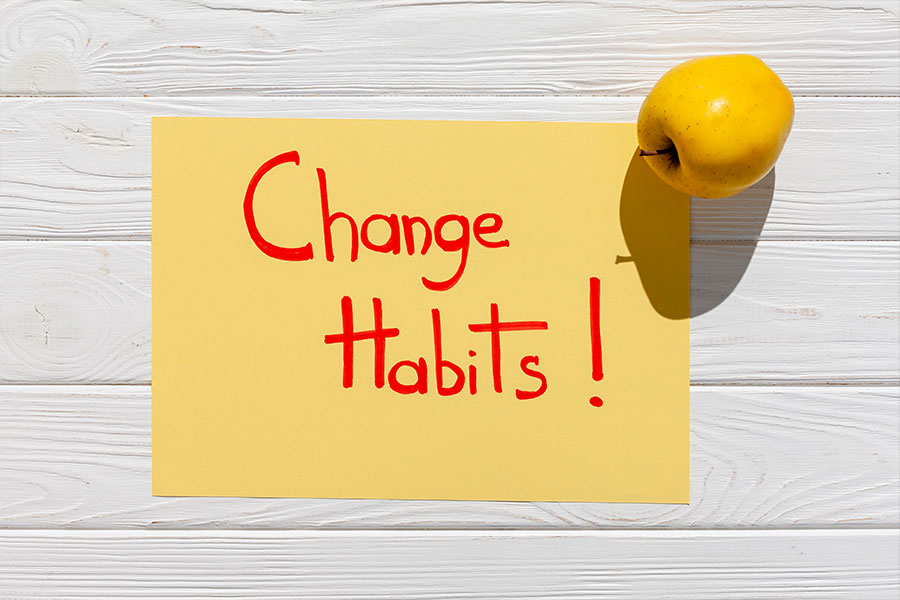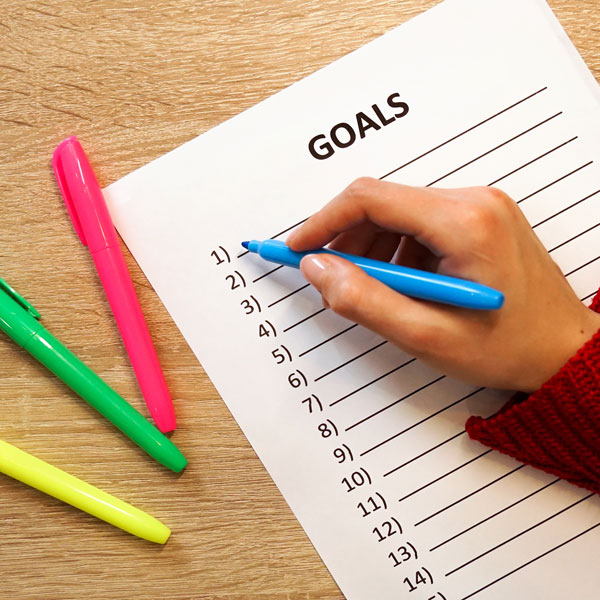- Start by writing down your goal. Focus on the new behaviour you want to embrace or increase – instead of what you DO NOT WANT to do anymore. The brain cannot interpret the word NOT or DON’T. Therefore, whenever you confirm what you do NOT want to do, you are subconsciously programming yourself to continue with the behaviour you want to change.
- Write your goal in statement form, as if you have already reached your goal. By writing it down, you are activating the reticular part of your brain, which will support you to reach your goal by pointing you to available information that might be useful on your journey.
- Be realistic with your goal setting. Small incremental steps might be an easier way to reach your goals. However, when changing a bad habit, going cold turkey can sometimes be the best way to get through the withdrawal symptoms in one shot, rather than experiencing some withdrawal every time you lower your dosage. It is advisable to get professional support or guidance to manage potential withdrawal symptoms. There are different alternatives to support you with both chemical and natural remedies.
- Write down 5 reasons why you want to reach your new goal.
- Write down 5 implications if you do not get to reach your new goal and decide if it is worth it not to change.
- Be patient! Reprogramming your subconscious mind takes time. You will need to focus on your new behaviour for a minimum of 21 days – or even 3×21 days where behaviour has been embedded strongly, to anchor your new behaviour.
- Visualise your new behaviour and results for 8 minutes per day! Visualising your new behaviour as if you have mastered it already, will support subconscious programming. It will speed up the process and support maximum success!
- Share your goal with friends who will inspire you and keep you accountable.
- Mingle with people who are living out the behaviour you want to develop.
- Reward yourself for small incremental wins during the process. Just be careful not to reward yourself with anything to eat, if you want to work on your diet. Learn different ways to reward yourself, whether it is to spend time with friends, going for a massage, watching a movie, taking a walk, etc.
- Realise that relapse is part of growing into new behaviour! Slipping into old familiar ways is normal! Do not allow it to de-motivate you. Get back on track as soon as you can! Do not wait for the next day, or the next week – Start immediately! Reflect on why it happened and get healthy ways to counteract the next possible risk, e.g. if a certain emotional response triggered your behaviour, get healthy ways to respond if you experience challenging emotions. Maybe a chat to a friend, taking a long walk, or re-doing your success visualising exercise on the spot, might be supportive of your goal!
All the best with your new habit and healthier you!
Author – Annemie Becker


